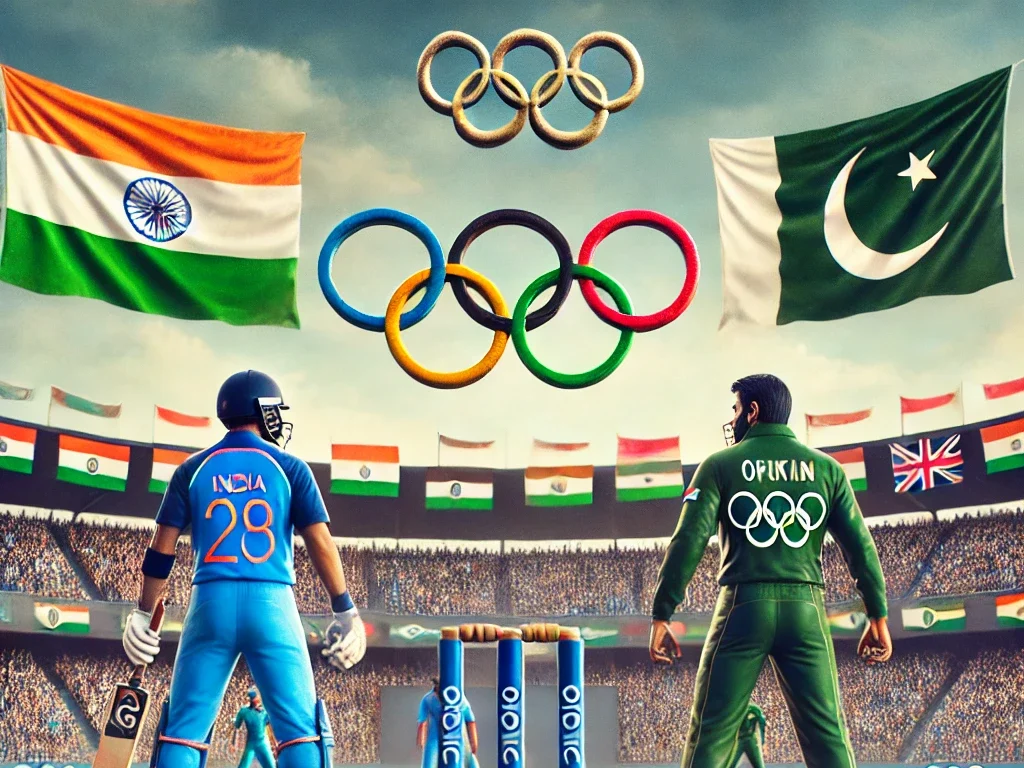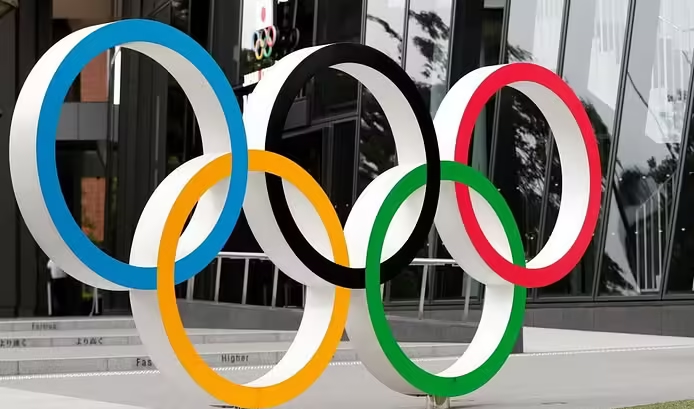As India sets its sights on hosting the 2036 Olympics, the Board of Control for Cricket in India (BCCI) has made headlines with its firm decision not to send the Indian cricket team to Pakistan for the upcoming ICC Champions Trophy 2025, citing security concerns. This decision could have repercussions far beyond the world of cricket, potentially affecting India’s bid to host the 2036 Olympics. Let’s explore the details and the broader implications of this development.
The BCCI’s Firm Stance: Why No to Pakistan?

The BCCI’s refusal to travel to Pakistan for the 2025 Champions Trophy comes amidst ongoing political tensions between India and Pakistan. The Indian cricket board has consistently cited security concerns when it comes to sending players to Pakistan, especially given the history of terrorist attacks that have affected international cricketing events in the region.
The BCCI’s official stance was communicated to the International Cricket Council (ICC) through a formal letter, confirming their decision despite the Pakistan Cricket Board (PCB) confirming the location of the Champions Trophy.
PCB and Pakistan Government’s Reaction
Unsurprisingly, the PCB and the Government of Pakistan have expressed disappointment with the BCCI’s decision, with some reports suggesting they might take diplomatic steps to address the situation. The government is considering lodging a formal complaint with the International Olympic Committee (IOC) about India’s actions, claiming that political issues are unfairly influencing sporting ties between the two nations.
While India has allowed Pakistani teams to participate in various sporting events on its soil, tensions over visa refusals to Pakistani athletes in other sports like snooker and billiards in recent years have worsened relations. This has led to speculation that, should India win the bid to host the 2036 Summer Olympics, Pakistan’s athletes may face difficulties traveling to the event due to strained diplomatic ties.
How Will This Affect India’s 2036 Olympic Bid?
India’s bid for the 2036 Summer Olympics has been gaining momentum, with the government recently submitting a ‘Letter of Intent’ to the International Olympic Committee (IOC). The growing influence of India’s sports infrastructure and the nation’s push to strengthen its global sports presence make the country a prime contender for the Games.
However, the ongoing tensions with Pakistan could complicate matters. If India does secure the rights to host the Games, it’s highly likely that Pakistani athletes may encounter visa issues or be denied entry to India for the prestigious event, creating potential diplomatic friction. In an era where global sporting events increasingly aim to promote unity, this issue could potentially tarnish India’s Olympic aspirations if not addressed adequately.
Diplomatic Fallout: Will Pakistan Boycott Future Sports Events?
The standoff between India and Pakistan in terms of cricket and other sports is not new. The two countries have not played a bilateral series in cricket since 2012, with the political climate serving as a significant barrier to any positive resolution. The PCB is reportedly contemplating a boycott of all future sports engagements with India unless the Indian team agrees to play in Pakistan, putting pressure on the ICC and other global sporting bodies to find a resolution.
This boycott threat further complicates matters, especially considering the growing importance of global sports tournaments and regional cooperation. However, such a stance could also hinder Pakistan’s own participation in international tournaments, isolating the nation in the long term if the situation remains unresolved.
Hybrid Model: A Solution or Temporary Fix?
In 2023, Pakistan was forced to host the Asia Cup under a ‘hybrid model,’ where India played all their matches in Sri Lanka while Pakistan hosted the rest of the games, including the final. This compromise allowed the tournament to go ahead despite the diplomatic standoff.
However, the prospects of a similar arrangement for the 2025 Champions Trophy seem unlikely. According to reports, the Pakistani government has advised the PCB against agreeing to the hybrid model again, citing the potential long-term impact on Pakistan’s sovereignty and standing in global cricket.
The Bigger Picture: Political Influence in Sports
This situation isn’t unique to cricket or the India-Pakistan relationship. Political influences have often played a significant role in shaping the dynamics of international sporting events. The BCCI’s stance may just be the tip of the iceberg in a broader geopolitical debate on whether sport should remain separate from political agendas.
In fact, the International Olympic Committee (IOC) has long struggled with the idea of politics influencing its decisions, as seen in the historic boycott of the 1980 Moscow Olympics by several Western nations due to the Soviet invasion of Afghanistan.
Can Cricket Serve as a Bridge Between Nations?
Despite the tension, cricket has historically served as a bridge between India and Pakistan. The rivalry between the two countries on the cricket field is one of the most intense in the world, but it has also been a platform for dialogue and understanding. However, the political climate has increasingly threatened this unity, leaving fans and sports officials to wonder whether cricket—and sport in general—can still play a role in fostering peace and diplomatic relations in the region.
Looking Ahead: Will Relations Improve?
With the 2025 Champions Trophy and the 2036 Olympics bid looming large, it remains to be seen whether diplomatic relations between India and Pakistan will improve. The potential for change lies in the hands of both governments and the global sporting bodies that have the power to facilitate dialogue and potentially offer solutions to the current impasse.
Conclusion: A Long Road Ahead for Diplomatic Relations in Sports
The BCCI’s decision to pull out of the 2025 Champions Trophy could have far-reaching consequences, not just for cricket, but for India’s international sports standing as a whole. If tensions between India and Pakistan continue, it’s likely that the challenges facing both nations in terms of hosting global sporting events will persist. Only time will tell whether the two countries can set aside political differences for the greater good of sports and diplomacy.

